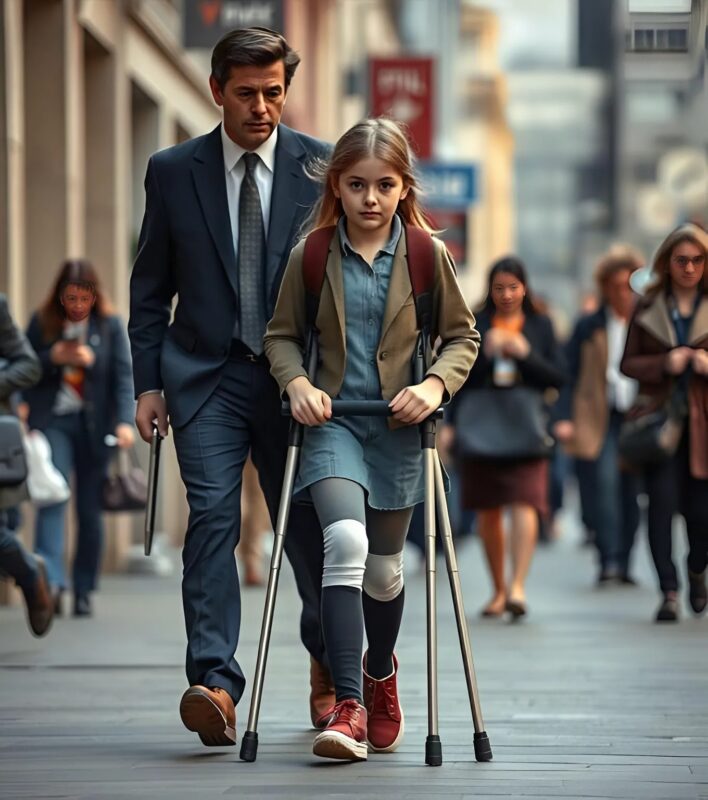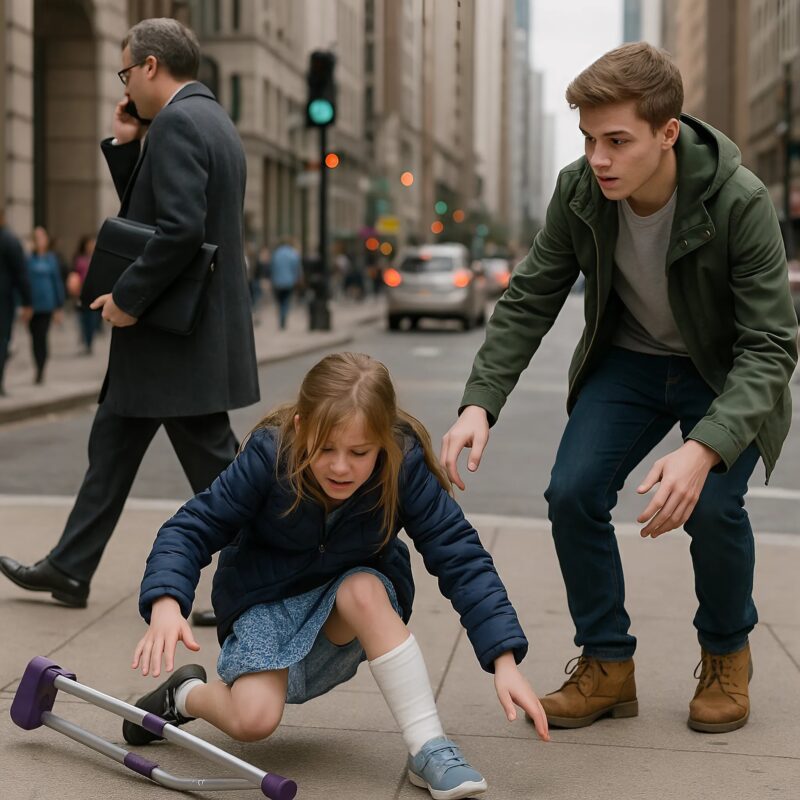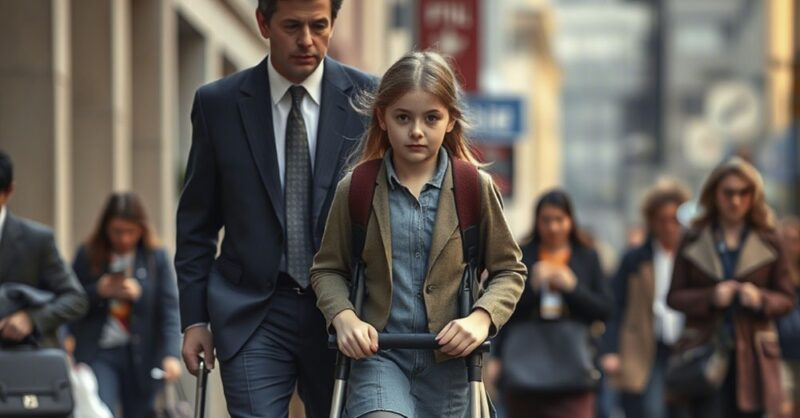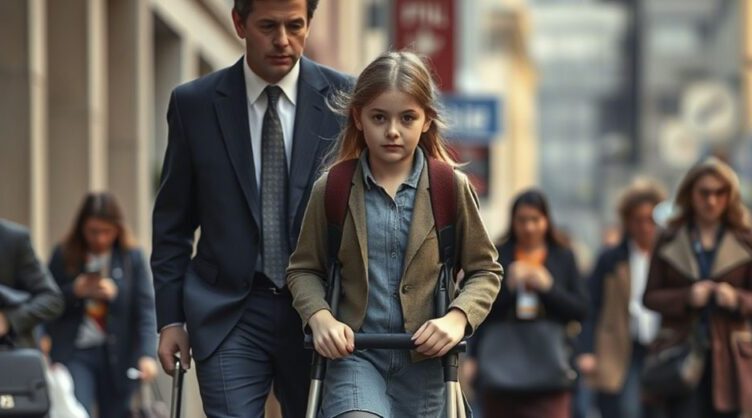One second of carelessness. A sharp elbow movement. A man who didn’t even turn around. And a little girl who didn’t fall. At first glance – a small incident. In truth – a reason to reflect on how we live in our cities.
It all happened at a busy crosswalk in downtown Boston, a city where everyone is always in a hurry. Pedestrians, lost in thought, clutching coffee cups or glued to their phones, were crossing the street. Among them – Leah Bennett, an 8-year-old girl with a cast on her leg and crutches taller than she was.
It was a cold morning. The light turned green for pedestrians.
Leah stepped forward confidently. At that moment, a tall man emerged from the crowd – expensive coat, phone to his ear, briefcase under his arm. His elbow struck Leah’s crutch sharply. It slipped. She wobbled. The crutch fell. She nearly lost her balance… but didn’t. Pale face. Clenched lips.
And the man? He didn’t even look back. Just kept going as if nothing had happened. But what happened next… froze him in fear.

Ethan Cole, a 20-year-old student, witnessed the entire scene. He was filming for his vlog and caught everything: the bump, the indifference.
“Are you okay?” he asked Leah as he helped her cross.
“Yes…” she whispered, teary-eyed.
Ethan uploaded the video. Title: Less Rush, More Humanity. He didn’t expect what followed.
That same evening, the clip hit the front page of news websites. Within hours, it aired on TV. Twitter exploded. TikTok was full of reactions. Facebook groups were outraged:
“Who is this guy?”
“You don’t treat a kid on crutches like that!”
“He should be fired!”
People analyzed every frame: expensive watch, initials on the briefcase, designer coat. By midnight, they knew who he was: Gregory Langston – senior partner at one of Boston’s top law firms.
And the storm began.
Gregory woke up famous – but not as a successful lawyer, as the face of inhumanity. His inbox was full: “Shame on you!”, “Resign!”, “Your clients are leaving.” His firm called an emergency meeting: resign quietly or be fired publicly.
Gregory looked out the window. For the first time in years, he didn’t feel powerful – he felt afraid. Not of losing a job, but of losing his reputation. One second had erased 30 years of his career.
Meanwhile…
Leah sat at home, curled up against her mom, gripping her crutch. Rachel Bennett, her mother and a fighter by nature, stroked her daughter’s hair.
“You’re brave, sweetheart…”
Leah didn’t yet know her story would touch an entire country. That thousands would want to help. And that soon, strangers would knock on their door.
That same evening, two women arrived: Tanya Morris, a volunteer, and Melissa Graves, a journalist. They brought a box: new, lighter crutches with colorful stickers, books, toys, and a card that read: For the little warrior from Boston.
Rachel accepted the gifts with a quiet “thank you” and tried to hide her tears so Leah wouldn’t see.
The next day, a new online trend was born. People posted photos helping strangers: holding doors, giving up seats, guiding the elderly or the blind.
Every post had the same hashtag: #ISeeYou
A quiet wave rose – a virus of kindness against indifference.

Ethan’s vlog went viral. The video reached millions. But he wasn’t after fame. He donated the ad revenue to foundations, contacted hospitals, and stayed out of the spotlight. His gesture became the first step toward a real miracle for Leah.
Dr. Karen Whitmore, from a leading children’s clinic, offered free treatment. For Rachel and Leah, it was a light after months of darkness.
Three months later, Leah took her first steps – without crutches.
At a city hall ceremony in Boston, Leah walked onto the stage on her own. Blue dress. Short hair. Sparkling eyes. She received a medal for civic bravery. But more powerful than the award were the audience’s tears and the thunderous applause.
And Gregory Langston? He didn’t disappear. But he learned – never again to be caught in a viral video.

A few days later, Leah received an anonymous letter:
“I’m sorry for that day. You are braver than I’ll ever be. May your path be bright.”
She never knew who sent it. But she kept it – forever.
Just one video. One click – and many lives changed. One man lost a career. Another found meaning. And one child – found hope.
But most importantly: it wasn’t hate that went viral – it was humanity.
A simple “I see you” became the strongest answer to everyday indifference.
